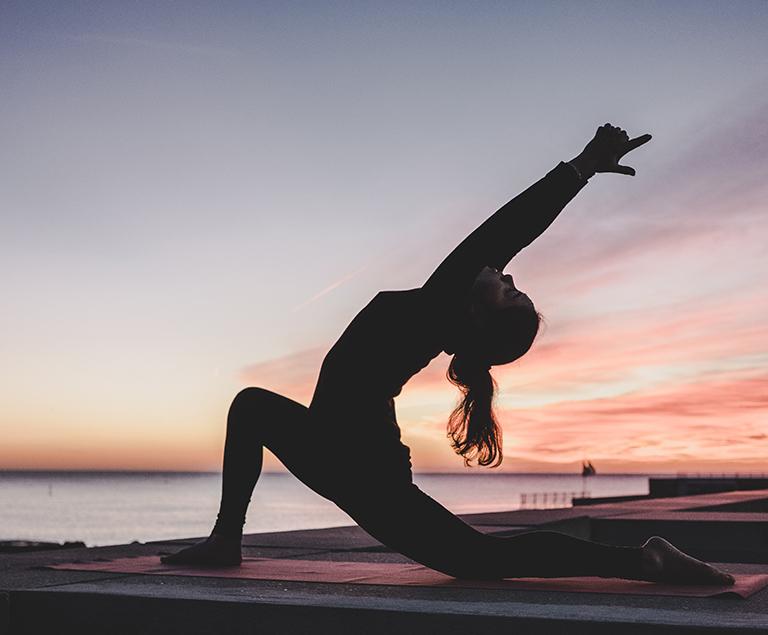2020 has been an entire series of Black Mirror so far, with the pandemic taking centre stage. As with most things, there are two sides to the coin. With the virus becoming a big part of everybody’s lives, we have some time to take stock of what truly matters and perhaps have that bit of extra time to slow down and listen to what is happening around the world as well. That is important for us to grow as human beings. As the saying goes, we grow through adversity, or as a comic creator, Nathan W Pyle says well, “No discomfort no expansion.” Well, he meant it in the gym sense but we like to apply it to most things in life.

Another pattern that we are familiar with — what goes up will come down. The high number of COVID-19 cases have been stabilising as countries step up efforts to control the spread and attempt to reopen their economy. With that, many of us are due to head back to our offices, if you are not back already. After weeks of staying at home, working in the comforts of your bed and with the company of loved ones and possibly your pet, there is definitely inertia for some about getting back out there. We get you. Here’s a shortlist of how you can prepare yourself to get out there again.
Tune your circadian rhythm back to the right time zone
Staying up past bedtime for “one more episode” or scrolling through Instagram, and before you know it, it’s 3 am, but it’s okay because you just have to roll out of bed and work in your PJs. You’ll probably get sleepy halfway through the day while working (or really just sitting in front of the computer playing with your pet) but when it comes time to go to bed, you are suddenly a ball of energy again.
If that sounds familiar, the first step of getting back into the groove would be to tune yourself back to the right time zone. Ample rest is essential for any brain work, so it is definitely an ingredient to being effective at work. For you to wake up in the morning; feeling the inertia of weeks of staying home, dragging yourself to the office feeling exhausted… That already sounds tiresome and the day hasn’t even started! There are many benefits of sleep that includes improved concentration, memory retainment, and immune function, and more. Some tips to help you get back on form:
- Keep a regular sleep and wake schedule
- Consciously plan to push your sleep time earlier until it is at your pre-pandemic timing
- Avoid caffeine 4-6 hours before sleeping if you are sensitive to it
- Put your phone and all screens aside 2 hours before sleeping
- Develop a pre-bed routine (e.g. a glass of chamomile tea, a 30-minutes reading time)
Exercise!
There are some who turned into fitness buffs over the stay home period, and some who couldn’t care less. It doesn’t matter which category you fall into, but putting in some time to move a little can help to get you back into the groove! One of our comforts during this period is having the opportunity to eat and work from a comfortable nook but we know that will change once we head back to the office. Exercise will serve to shake up that routine a little to replace some of that time on the couch for a bit of workout!
Exercise has been proven to make us feel more energetic in general – it increases the production of endorphins, which helps to produce positive feelings and has an analgesic effect. In short, it makes us happy and reduces the pain of going back to the office! We’re not even going to talk about its other benefits like improving mental functions and reducing the risk of diseases. The fact that you are making yourself move already has the potential to get you ready to get back into the groove of working again.
The power of your mind
Some of us might be having anxiety just thinking about heading back out there and it just might be something that sleep and exercise wouldn’t be able to solve. Times like these, we tap into the power of our minds with a self-check. Identify the specific feelings that you have and after putting a name to how you feel, identify the possible causes. That may help you to rationalise your concerns and worries, and ease the anxiety a little by breaking down an abstract feeling into something that you can pinpoint.
Use the power of your mind and meditate. Take a few breaths and relax your mind – you can use apps like Calm to help with the meditation process, or a quick search on Spotify would bring you to guided meditation podcasts that will bring you the serenity that you need. Remember this calmness from your meditation and use it to relax when you experience anxiety, whether when you are thinking about getting out of the house, or facing the crowds.
There is more than one way to reduce your anxiety and meditation and identifying your feelings are just simple ways that you can practice. It could also be helpful to talk to a close friend or family – sometimes simply talking it out and gaining new perspectives can reduce the anxiety. If you need help, reach out to your loved ones and let them know.
There are many things in life that we take for granted and just because some of us find certain things natural, it could be difficult for others. Inertia might be something that we feel at the start, but for some, inertia takes on forms that affect them on a day to day basis. It is important for us to know that and offer help where required and be sensitive about it. We hope that this article will be helpful to help you get back into the groove. This is also a good time to take a little time to practice being thankful for what we have. There are some countries that are still working to contain the virus and prevent a second wave and our hearts are with them. Practice being grateful and gracious, be part of making this world a better one.

































